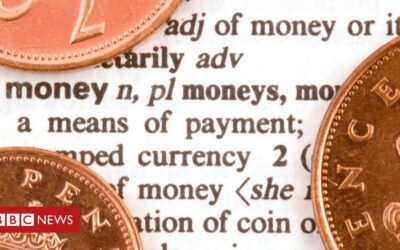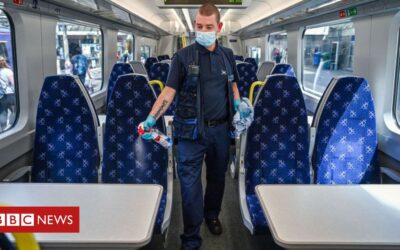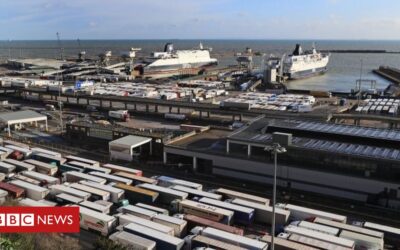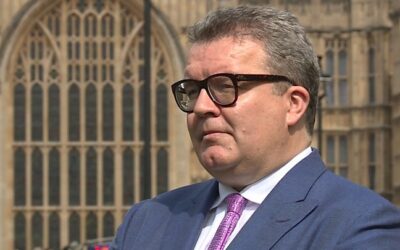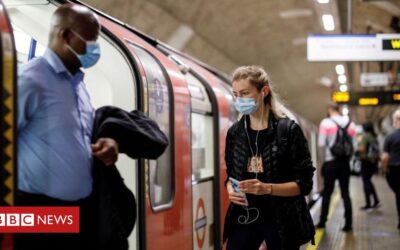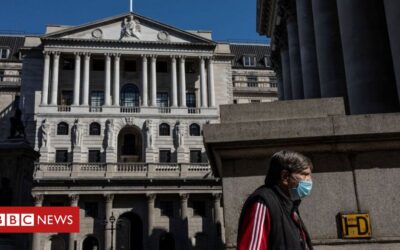Sean Heavey recognised his photo the moment he saw it on Stranger Things. “God, that storm looks familiar,” he said, as he and his son watched the hit Netflix show.When he watched a documentary about the making of the series, he became certain. “They saved it off of Google, added a foreground to it and used it as a piece of concept art,” Mr Heavey says. No-one else had photographed this supercell thunderstorm; no other cars drove down the road that day, to chase it across the Montana prairie. He called the four panoramic shots he had stitched together The Mothership.“I should have got credit and paid for it,” says Mr Heavey. He tried to contact Netflix, but the company told him, “You can’t copyright Mother Nature.” His case stalled.Chasing storms is no hobby for Mr Heavey. Getting that perfect shot costs him thousands of dollars in petrol every year. He braves “golf ball-sized hail”, winds raging over 100mph and rescues stranded people. He complained on social media and his remarks were read by executives at Pixsy, a firm that helps photographers fight copyright infringement. They contacted Mr Heavey and, eager for the help, he agreed to work with them. Pixsy appointed Mr Heavey a lawyer, David Deal, and together they found six more occasions where Netflix used The Mothership. Netflix settled the lawsuit in December 2018, according to records seen by the BBC. The company did not respond to a request for comment.In the UK, if convicted in a magistrates’ court of copyright infringement you could face six months in jail or a fine of up to £50,000. Conviction in a Crown Court could carry a penalty of 10 years in jail and/or an unlimited fine. In the United States, fines can reach $150,000 (£115,000) every time a picture is used the wrong way. When a case is successful, firms like Pixsy collect 50% of the settlement or award at court. “They all settle,” says Mr Deal, of copyright cases. He says this is because the law is clear cut. More Technology of BusinessPixsy is one of a handful of companies that has developed image look-up technology to monitor and pursue copyright infringement on behalf of photographers. Its service incorporates artificial intelligence that has been trained to match an artist’s work with instances on the web. It can also identify alterations including crops, re-colouring and layers added or removed.The moment a picture is taken, as long as it was taken by a human being, it is protected by intellectual property laws. More than 2.5 billion images are stolen daily, according to a 2019 study by Copytrack, a copyright search and enforcement firm. Many of these are found using a technology called reverse image look-up. This works like Bing or Google, but rather than using words to find related information, the search matches pictures.Some of the free image search engines, like TinEye and Google, will also verify when and where a picture was taken and if it was altered. Copyright infringement firms use this same technology but will also hire a lawyer and cover the costs of filing a lawsuit. Pixsy is close to filing its 100,000th case of copyright infringement in five years. It currently monitors close to 100 million images.“Keeping on top of all of this is impossible for any individual. For us, we see this as a very big problem for photo owners and photo creators,” says Kain Jones, the chief executive of Pixsy. He argues that licence fees are “bread and butter” to many photographers. “That’s where we come in, where we’re happy to be the bad guy,” Mr Jones says. However, Chip Stewart, a media law professor at Texas Christian University in the US, says that because so many of these cases settle out of court, the system is ripe for abuse. Recently, a student of his used an image from a Creative Commons website for the school newspaper. Though she did not have to pay a licence fee, she did not follow the requirements listed under the photo, to credit the photographer or add a link to his website. Through Pixsy, the photographer found the student and issued her a letter asking for a $750 licence fee. “The 20-year-old student was pretty terrified getting a demand letter and she said, ‘I thought we did everything right.’ And I said, ‘I can tell you right now that you didn’t, but it’s an easy mistake to make.'”A search through public records revealed that the photographer had filed more than 40 similar cases that year. They negotiated him down and agreed to pay a fee of $500. Fighting over such a small fee in court would cost a fortune. “It is not worth two years and tens of thousands of dollars of litigation on the off-chance we might win. And if you lose, you might pay the lawyer fees. That’s what these copyright troll firms realise – is that the system is so heavily weighted in favour of copyright owners,” says Mr Stewart. In response Pixsy said: “One of our key criteria [for Pixsy to work on the case] is that it is a commercial usage of the photo. In your example of the private university, they are a revenue-generating organisation and are not exempt from copyright law. A case would be with the university itself and not an individual student.”Some actors have given those who pursue copyright claims a bad reputation. One particularly prolific lawyer, Richard Liebowitz, has been dubbed a “copyright troll”, having filed about 1,280 cases in the Southern District of New York since 2017.As well as the sheer number of cases he’s filed, his behaviour has not endeared him to the courts and a judge recently fined him $103,500 for misconduct, which included “repeated violations of court orders and outright dishonesty, sometimes under oath”.Joe Naylor is the chief executive of ImageRights International, another company like Pixsy that uses technology to help photographers pursue copyright infringement. He says lawyers like Liebowitz are bad for the industry.“It does profound and fundamental damage to copyright holders who are trying to protect their rights,” says Mr Naylor. Pursuing licence fees must always be the photographer’s choice. However, Mr Naylor says his company does not recommend photographers go after non-profit blogs or student newspapers.While he understands this happens, he says ImageRights International is more interested in defending professional photographers like Sean Heavey. “There’s literally no word that can be spoken to me that makes me more angry than photographers being called trolls for trying to pursue their own claims.”Sean Heavey still sees instances of The Mothership used without permission. If people credit the picture he “lets it slide”, especially if there is no profit involved.Recently he found a lady who was selling prints of the photo claiming it was her picture. Another Instagram influencer often claims The Mothership is his. He says: “Being able to stand up and know your rights – it’s good, because it keeps food on the table for my family.”
BBC Business News Articles
No new 2p or £2 coins to be made for 10 years
Anyone who likes to see a new production date on their coins is set for a disappointing decade.The Royal Mint has no plans to make new 2p or £2 coins for the next 10 years.A coin mountain lies in storage as demand has dropped, in contrast to banknotes.The issue was revealed in a wide-ranging report on the future of cash by the National Audit Office (NAO) warning it could become harder to access by those who rely on it.It warned that the authorities were not keeping up with the pace of change in digital payments – leaving those who needed cash at risk. Future of 1p and 2p coins secured ‘for years to come’
Coronavirus ‘will hasten the decline of cash’
Ten years ago, cash was used in six out of 10 transactions but by 2019 it was used in less than three in 10 purchases. The NAO said the coronavirus outbreak may have accelerated the trend. Despite the decline in cash use, a riddle remains over demand for coins and banknotes.Coin-making has been cut by The Royal Mint but stocks of every coin in circulation are exceeding its targets. For £2 coins, the hoard is 26 times over target.A spokeswoman for The Royal Mint said 2p and £2 coin production could return if needed.”We constantly monitor the demand for coins from the banks and Post Offices, and seek permission to manufacture more from HM Treasury,” she said.These coins have not been needed because lots of old coins were returned to circulation when the 12-sided £1 coin was launched in March 2017.Everyone had six months to return their old round pounds and emptied savings jam jars or money stores at work, sending the entire contents back to their banks.In contrast, demand for banknotes has been rising and there is little reliable information over the whereabouts of £50bn worth of notes in circulation.They are not used in transactions or held as savings, but may be overseas, tucked away in homes unreported or being used in the “shadow economy”.Old and poor ‘left behind’The NAO said there were wider issues over access to cash, partly owing to the closure of 17% of cash machines in two years.Older and lower-income consumers tended to use cash more and were at risk if nobody took responsibility for stopping the slide in cash access.”Cash use might be declining overall but it remains a vital part of millions of people’s lives – particularly for some of the most vulnerable in society,” said Meg Hiller, who chairs the influential Public Accounts Committee in the House of Commons.”The government took its eye off the ball and too many people already have to go out of their way to get their hands on cash. “It and the regulators will have to hurry to catch up with fast-moving technology, or even more people could be left behind.”The government has committed, with legislation, to protect access to cash, and address the sustainability of the cash infrastructure as its use falls. Some businesses that transport or process cash could struggle, it said.The NAO said it could not currently see a clear link between the government’s aim and which of the various public bodies involved in overseeing the cash network could actually make it happen.Gareth Davies, head of the NAO, said: “The approach is fragmented, and it is not clear that the action being taken will keep up with the pace of change.”As society progresses towards the wide use of digital payments, the use of cash in transactions is dwindling. It may become harder for people to access cash when they need it and those without the means to pay digitally will struggle if cash is not accepted.”
Rail nationalisations may be coming down the track
Some UK railway franchises could be nationalised when emergency deals set up during the coronavirus pandemic expire on Sunday.Insiders said talks between the government and train firms on new deals were going “right to the wire”.The government has pumped billions of pounds into the railways to cover the fall in ticket revenue from low passenger numbers during the pandemic.But sources said some contracts could be handed back to the government.Many private operators are expected to remain in place under similar emergency arrangements, but some may decide to opt out. The Department for Transport said discussions were “ongoing” and it wouldn’t comment on commercially-sensitive negotiations. Looming deadlineIn the House of Commons on Thursday Labour’s Jim McMahon said it was “absolutely staggering” that Transport Secretary Grant Shapps did not have an update on the situation at such a late stage. A deadline of this Sunday has been in place since March when the current emergency contracts were signed.Rail firms stress safety as more train services resumeMr Shapps said it was right that the negotiations with nine different companies were not done “in public”.Securing new agreements, even ones which will probably only cover the short-term control and finances of the railways, is complicated by two main factors. The first is that no-one can say when passenger numbers on the railways will return to pre-pandemic levels. The second is the fact that certain train companies were losing money before the pandemic. Poor performanceIn fact, at the beginning of the year ministers were poised to announce an overhaul of Britain’s railways. Reliability on certain networks had been poor and some train companies were losing money. The government took control of the operator Northern in January. South Western Railway was heading in a similar direction. But when the pandemic hit, the contracts between the Department for Transport and private companies were suspended, not scrapped. It means some financial obligations from that period remain. That backdrop and the uncertainty about future passenger numbers, and therefore the commercial viability of the railways in the longer-term, means certain rail operators might be tempted to opt out.Future plansEven if all of the train operators sign-up to a series of new emergency contracts by Sunday, a longer-term deal still needs to be worked-out. The Department for Transport is said to favour a shift towards a “concessionary model” for the railways, which is already in operation on Merseyrail and the London Overground.It means private companies run services for a fixed fee and any loss or profit falls to the government in charge. This system, which shifts risk away from private firms, is said to be favoured by train companies operating large, complicated commuter networks.Operators in charge of intercity networks want to maintain some of the commercial flexibility that they had in the past, over things such as pricing. However solving the longer-term conundrum is made harder by the resurgence of the virus and the uncertainty that adds over passenger numbers. For now, government guidelines over social-distancing are supposed to limit passenger numbers on trains to around 40% to 50%.
Brexit: Hauliers' meeting with Michael Gove 'a washout'
The Road Haulage Association has described its meeting with Michael Gove about post-Brexit arrangements as “a washout”.The body said there had been “no clarity” from the senior minister on how border checks will operate when the transition period ends after December.Although the UK has left the EU, it has continued following some EU rules during the transition period.A Cabinet Office spokesperson said the meeting had been “constructive”.After the transition period traders will need to fill in customs declaration forms, with detailed information on what is being imported and exported.The haulage industry has expressed concern this could lead to long tailbacks at ports and disruption to supply chains.In Kent a coronavirus testing centre has been closed to make way for a lorry park to accommodate post-Brexit customs checks.And earlier this week Logistics UK warned that a new freight management system – designed to reduce delays at ports – will not be ready when the transition period ends.A meeting between the government and stakeholders was arranged to discuss industry concerns but Road Haulage Association chief executive Richard Burnett said that it “fell far short of our expectations”. “The mutually effective co-operation we wanted to ensure seamless border crossings just didn’t happen and there is still no clarity over the questions that we have raised,” he said.”Although I don’t think we’re quite back at square one, we’re certainly not much further ahead.”Chief executive of the Cold Chain Federation Shane Brennan who also attended the meeting said: “There is no point pretending it’s going to be smooth – we are heading for major delays and disruption – systems are not ready, processes are unclear, awareness of what will be required is low across industry”We will need calm heads and a willingness from customs, food and security officials (on the U.K. and EU side) to make sensible, pragmatic, decisions, probably throughout 2021 as systems bed down and new ways of working emerge.”A Cabinet Office spokesperson described the meeting as “constructive” and said government would “continue to intensify engagement with industry in the weeks ahead so we can hit the ground running on 1 January 2021 and seize new opportunities”. “To help businesses prepare, we have launched a major communications campaign in the UK and EU, committed to investing £705m in jobs, infrastructure and technology at the border and provided a £84m support package to boost the capacity of the customs intermediary sector.”Meanwhile informal talks aimed at agreeing a UK-EU trade deal are continuing in Brussels this week, ahead of another full-scale negotiation round later this month.A UK government spokesperson described the talks as “useful” and said “some limited progress was made” but added that “significant gaps remain in key areas, including fisheries and subsidies”.However the EU has warned that trade talks could be suspended unless the UK removes measures from its Internal Market Bill which could override parts of the original divorce deal.
Coronavirus: Singapore and Thailand added to England's 'quarantine-free' list
People arriving from Singapore and Thailand in England and Scotland will not need to quarantine from Saturday morning, the government has said.They have been added to the list of “travel corridor” countries. But travellers coming from Slovenia and Guadeloupe will have to self-isolate for two weeks. Both have also been added to Wales’ quarantine list, while arrivals there from Gibraltar and Thailand will not need to self-isolate. The changes come into force at 04:00 BST on Saturday. Which countries are on UK’s quarantine lists?The Department for Transport (DfT) said there had been “a significant change in both the level and pace of confirmed cases of coronavirus” in both Slovenia and Guadeloupe. Data from Slovenia shows that its seven-day rate of cases is 29.1 per 100,000 people, up from 14.4 in the previous seven days.The rate for Guadeloupe has risen more than six-fold in the past four weeks, the DfT said.When a country’s rate rises above 20, the UK government considers imposing quarantine restrictions.
Media playback is unsupported on your device
Travellers who do not self-isolate when they are supposed to can be fined £1,000 in England, Wales and Northern Ireland, or £480 in Scotland. Transport Secretary Grant Shapps reminded passengers they were required by law to fill in a passenger locator form.The form asks travellers to provide their contact details and UK address. Passengers can be fined up to £3,200 in England if they do not provide accurate contact details, or £1,920 in Wales.”This is vital in protecting public health and ensuring those who need to are complying with self-isolation rules,” Mr Shapps said. The quarantine lists have changed – what’s new?The decision to remove quarantine restrictions for arrivals from Thailand and Singapore is unlikely to lead in a surge of people from England visiting as both countries are only allowing people to enter for a limited number of reasons, such as if they have a work permit or are the spouse or child of a resident. Denmark retained its quarantine exemption, despite its seven-day case rate being 33.8.The DfT urged employers to be “understanding” of people returning from Slovenia and Guadeloupe, as they will need to self-isolate.The statement gave no update on the possible introduction of testing at airports as a way of reducing quarantine requirements.The travel industry has demanded this should take place urgently to avoid further job losses.Earlier this week, British Airways boss Alex Cruz called for trials to be held for passengers flying between London and New York.He said “this is imperative”, adding that the airline is “still fighting for our own survival”.Last week, Sweden was made exempt from quarantine for Wales, England and Scotland.At the same time, Portugal was placed back on England’s quarantine list after a rise in infections. It comes as coronavirus cases in the UK rose by 3,395 on Thursday, government figures showed, while deaths within 28 days of a positive coronavirus test increased by 21.
How e-commerce is exploding in South Africa
E-commerce has been one sector that has boomed in South Africa during the pandemic.Startup Bottles launched South Africa’s first ever on-demand alcohol delivery app service in 2016.During the coronavirus lockdown the app firm expanded its services to provide groceries instead, and it saw triple the demand and its user base doubled. “Most definitely, I think coronavirus has, in just the space of a few weeks, accelerated the entire ecommerce industry in South Africa by 4-5 years at least,” Bottles’ co-founder and chief executive Vincent Viviers told the BBC.You can tune into In Business Africa every Friday at 18:30 GMT on BBC World News.
Lionel Messi wins nine-year fight to trademark his surname
Footballer Lionel Messi can register his name as a trademark after a nine-year legal battle, the EU’s top court has ruled.The European Court of Justice dismissed an appeal from Spanish cycling company Massi and the EU’s intellectual property office, EUIPO.The Barcelona footballer first applied to trademark his surname as a sportswear brand in 2011. But Massi argued the similarity between their logos would cause confusion.Liverpool FC fails in bid to trademark city’s nameThe European Court of Justice (ECJ) said that the star player’s reputation could be taken into account when weighing up whether the public would be able to tell the difference between the two brands.In doing so, it upheld a ruling by the EU’s General Court in 2018 that the footballer was too well known for confusion to arise. Massi, which sells cycle clothing and equipment, was successful in its initial challenge to the Barcelona striker’s application. But it lost out when Lionel Messi brought an appeal to the General Court, which ruled in his favour.Messi, 33, who wears the number 10 shirt, has been crowned world football player of the year a record six times and is the world’s highest-paid soccer player, according to Forbes. It puts his total earnings for 2020 at $126m (£97m).In August, he made headlines by sending a fax to his club declaring his intention to leave. But when Barcelona responded by insisting that any team that took him on would have to honour a €700m (£624m) release clause, he changed his mind, saying he did not want to face “the club I love” in court.
Tom Watson hired by gambling giant Paddy Power as adviser
Former Labour deputy leader Tom Watson has been appointed as an adviser to one of the UK’s biggest gambling firms.Mr Watson, who left Parliament last year, was a campaigner for stricter rules on gambling while he was an MP.He is joining Flutter, which owns brands like Paddy Power and Betfair.The firm said he will “bring a fresh and robust voice into the business, as it looks for ways to protect “vulnerable customers,” while serving those who enjoy gambling safely.Flutter, which also owns Sky Bet and Poker Stars, saw its pre-tax profits slump 70% to £24m in August, after being hit by coronavirus and the costs of a merger. The company is seeking to expand further into online poker and gaming.’Positive change’Mr Watson said: “I have a long-standing interest in this sector and consistently called for action to protect those that may be potentially vulnerable to harm.”In taking on this role in Flutter, I intend to get under the bonnet of the business.He added: “I strongly believe that working collaboratively with Flutter in this way will allow me to continue to drive positive change”.Mr Watson has previously called for an end to gambling advertising on football shirts, and a ban on television ads during live events and called gambling was a “hidden epidemic”.
Media playback is unsupported on your device
Mr Watson resigned his West Bromwich East seat in November 2019, choosing not to contest the general election. He had faced attempts to remove him as deputy leader by allies of then-Labour leader Jeremy Corbyn, but announced he wanted a change of career after losing eight stone in weight and was retraining as a gym instructor.High stakesHe was recently appointed chair of trade body UK Music, pledging to fight for the future of the industry during the coronavirus crisis.Gambling in the UK was liberalised by Tony Blair’s Labour government, leading to an explosion in online betting and high stakes gaming machines in High Street bookmakers.But the industry has faced a crackdown in recent years, with high stakes, fixed odds machines – dubbed the “crack cocaine of gambling” by critics – having their maximum stakes cut from £100 to £2.Paddy Power was one of two bookmakers chains forced to pull new roulette-style games in April last year after criticism from the Gambling Commission.The industry is also facing calls to ban on ads at sports grounds and on players’ shirts. A review of the 2005 Gambling Act is expected before the end of the year.Peter Jackson, Flutter’s chief executive, said bringing in someone with Mr Watson’s background was “an important part of my commitment to lead the industry’s race to the top”. He added: “We have to work harder than ever before to find a way to continue to bring great products and brands to our customers while always having the need to protect the vulnerable clearly in mind. “Tom will hold a mirror up to help us make sure we are getting this balance right.”Another former Labour frontbencher, and one-time ally of Mr Watson, Michael Dugher, was named as the chief executive the Betting and Gaming Council – a new trade body for betting shops, online gaming businesses and casinos – in December last year.
'Nearly two-thirds' of adults back in the workplace, says ONS
Nearly two in three adults are now travelling to work, as some employers ask their staff to return to offices during the pandemic.The Office for National Statistics (ONS) said that 62% of adults reported commuting to work last week. That compares with 36% in late May, soon after the ONS began compiling the figures during lockdown.The government has been encouraging workers to return to offices to help revive city centres.While the proportion of people travelling to work has increased, the ONS said 10% of the workforce remained on furlough leave.It added that 20% of people continued to work from home.Business groups have warned city centres could become “ghost towns” if more staff do not return, damaging small businesses that rely on passing trade from office workers.However, new research released on Thursday by the Chartered Institute of Personnel and Development (CIPD) suggests that working from home could be a permanent fixture for many, following the pandemic.According to the survey of 1,000 employers, 37% believe staff will regularly avoid the journey into the office following Covid-19 – up from just 18% before the pandemic.CIPD chief executive Peter Cheese said: “The step-change shift to home working to adapt to lockdowns has taught us all a lot about how we can be flexible in ways of working in the future.”Employers have learnt that, if supported and managed properly, home working can be as productive and innovative as office working and we can give more opportunity for people to benefit from better work-life balance.”However, he said it did not suit everyone and that organisations would have to design working arrangements around people’s needs while “also meeting the needs of the business”.Furlough wind-downThe ONS also found that about one in 10 workers are still furloughed under the government’s job retention scheme. Under the scheme, workers placed on leave have been able to receive 80% of their pay, up to a maximum of £2,500 a month.That level is likely to fall in coming weeks as the government has started to scale back the amount of money it pays out to furloughed workers. Companies who want to furlough their staff have had to pick up at least 10% of the bill since the beginning of September. In October, they will have to pay 20%.Almost 10 million workers have been furloughed since March, but the scheme is set to end entirely on 31 October.
Rising virus rates threaten economy, warns Bank
The Bank of England has warned that the rising rate of coronavirus infections and a lack of clarity over the UK’s future trade relationship with the EU could threaten the economic recovery.It said much of output lost during lockdown had been recovered but the outlook remained “unusually uncertain”.The UK is still in a deep recession, while Covid-19 infections are at their highest level since mid May. Citing the uncertainty, the Bank held interest rates at 0.1%, a historic low.It added that it would continue its monetary support for the economy, but stopped short of increasing its bond-buying programme or reducing interest rates further. What are interest rates?If you borrow money you usually have to pay a small fee set by the person lending to you. How high that fee – or interest rate – is depends on a “base rate” that is set by the Bank of England at meetings throughout the year.The rate determines how much banks have to pay to borrow money, and that has a knock-on effect on how much the bank charges consumers to borrow.When the economy is growing quickly the Bank tries to stop it overheating by raising interest rates, making it more expensive to borrow.When the economy is sluggish, cutting the Bank’s base rate lowers the cost of borrowing and can encourage businesses and consumers to spend more.The Monetary Policy Committee (MPC), which sets interest rate policy, said previous projections of economic recovery were “on the assumption of an immediate, orderly move to a comprehensive free trade agreement with the European Union on 1 January 2021″. Economic recovery would also depend on the evolution of the pandemic and measures taken to protect public health, the MPC said.”The recent increases in Covid-19 cases in some parts of the world, including the United Kingdom, have the potential to weigh further on economic activity, albeit probably on a lesser scale than seen earlier in the year,” it said. No change from the Bank of England on record low interest rates, nor on its wider support for the economy. On the face of it, the economy is less weak than it expected even last month, but profound uncertainties remain. The Bank in particular pointed to “recent increases in Covid-19”, including in the UK, that “have the potential to weigh further on economic activity”, as well as a recent fall in sterling partly “reflecting recent Brexit developments”.Given rates are at rock bottom already, sterling was further hit from the fact that the Bank’s deliberations over rates included a presentation over how “negative interest rates” might work. The Bank had been concerned of the impact of, in effect, lenders paying borrowers for the health of parts of the banking system. It is, as it has previously signalled, looking at how this could be achieved in practice. Should the uncertainties visible to all materialise in the coming weeks for the UK, that extraordinary and unprecedented tool is being prepared as an option.The government has had to impose new social distancing restrictions across England, as rising cases have forced many areas into local lockdowns.On Wednesday, the Prime Minister said the government was doing “everything in our power” to prevent another nationwide lockdown, which could have “disastrous” financial consequences for the UK.Negative ratesThe Bank of England said despite a stronger than expected recovery in the last few months, the economy was still about 7% smaller than at the end of last year.Usually if the economy is not growing strongly enough, the Bank of England considers lowering interest rates to encourage firms to invest and savers to spend.However, interest rates are already close to zero after two emergency rate cuts in March.Minutes from this month’s meeting show that the MPC discussed the use of negative interest rates to stimulate the economy. Last month, the Bank’s governor, Andrew Bailey, appeared to rule that out, though he said negative interest rates remained in the “tool box”. If interest rates are negative the Bank of England charges for any deposits it holds on behalf of the banks. That encourages banks to lend the money to business rather than deposit it.What are negative interest rates?
What exactly is the Bank of England interest rate?
The Bank also signalled that it had no intention of raising interest rates until “significant progress” had been made in getting inflation back to the Bank’s 2% target. It is currently at a five-year low of 0.2%.The Bank said it did not expect inflation to return to target levels for another two years.”We expect interest rates to be no higher than 0.1% for the next five years,” said Andrew Wishart, UK economist at Capital Economics.


